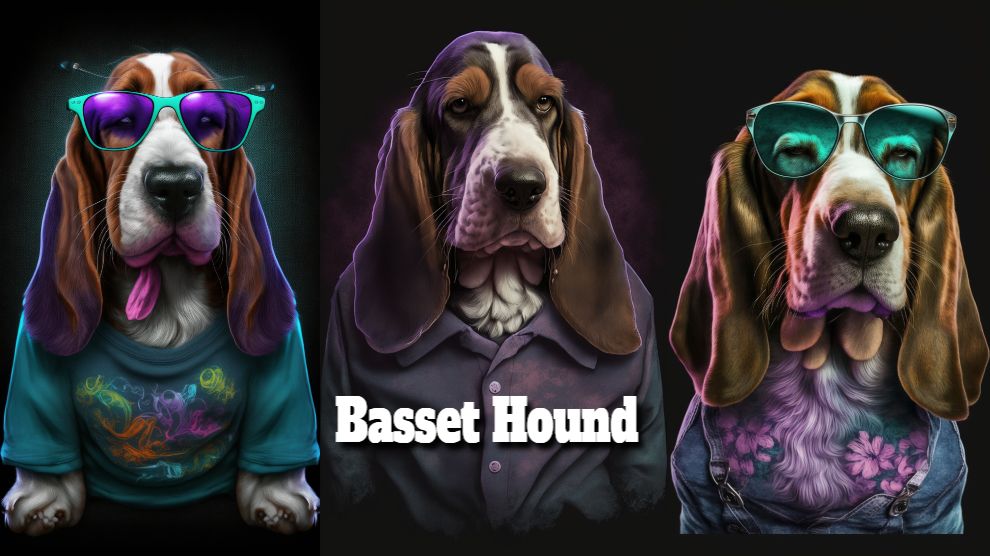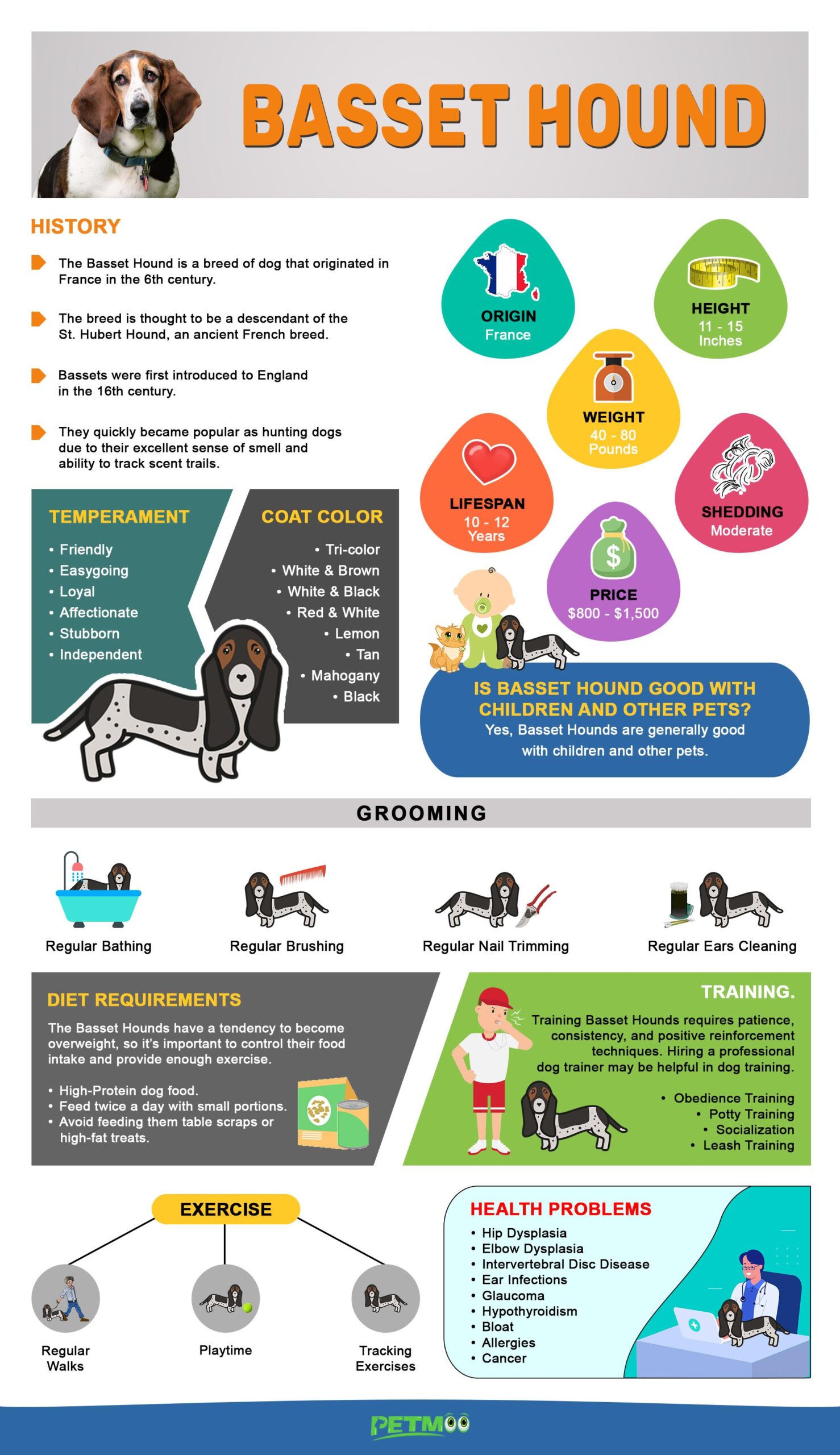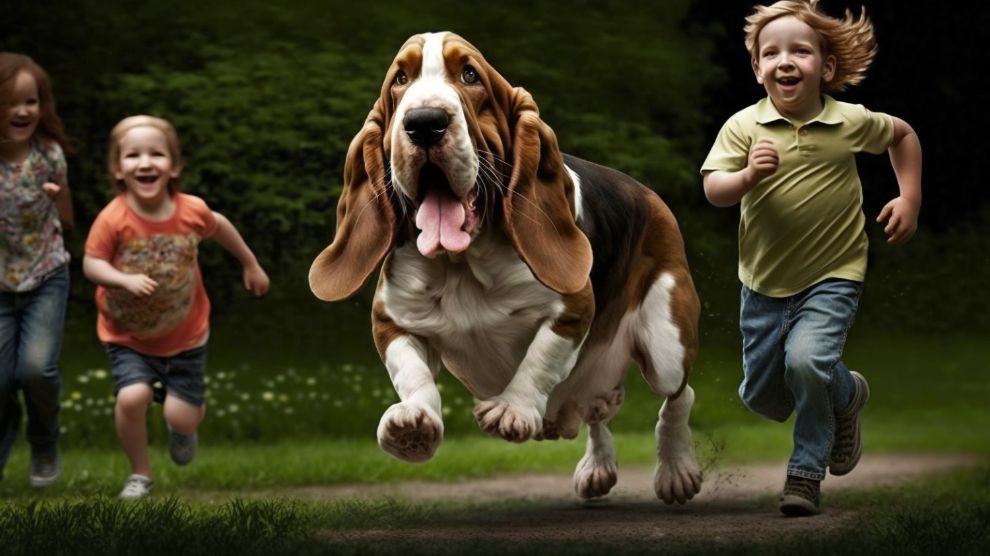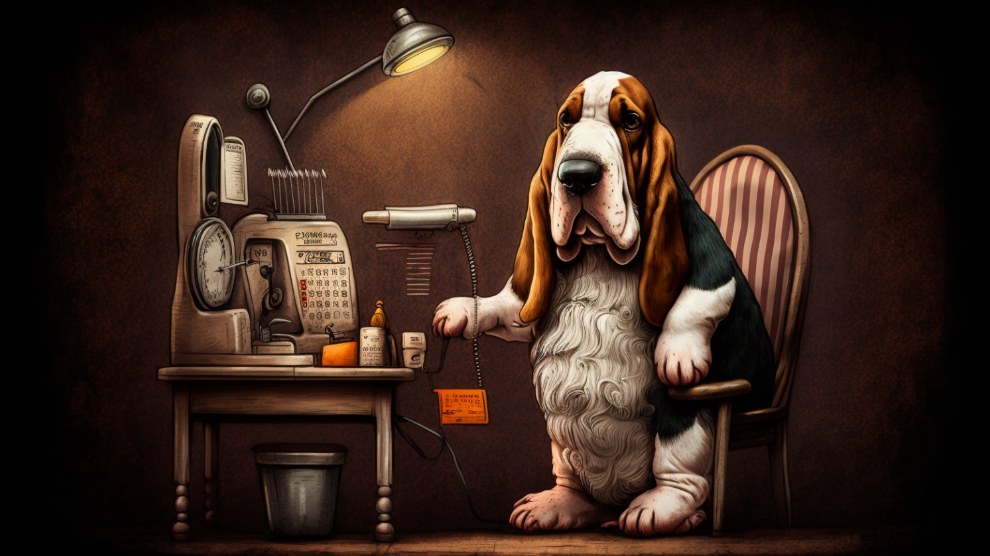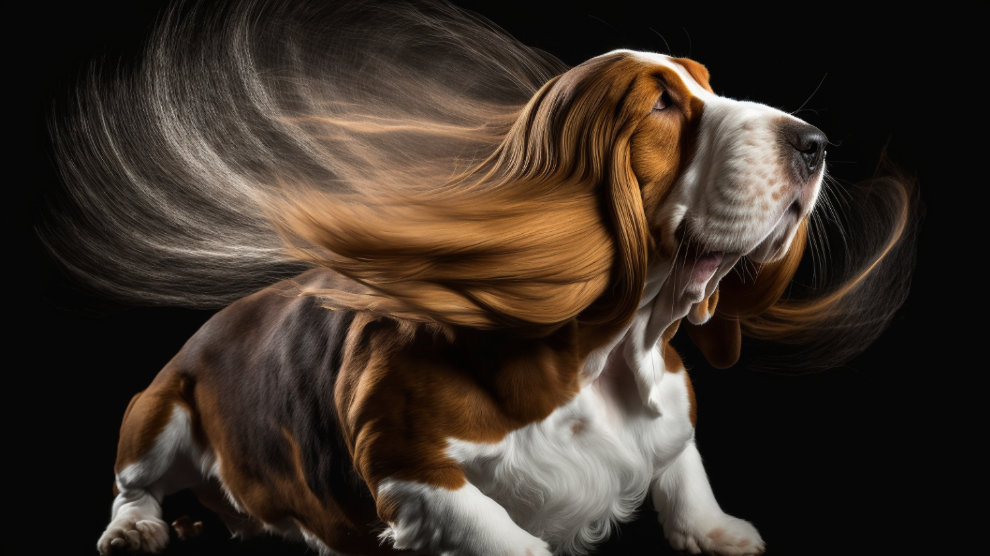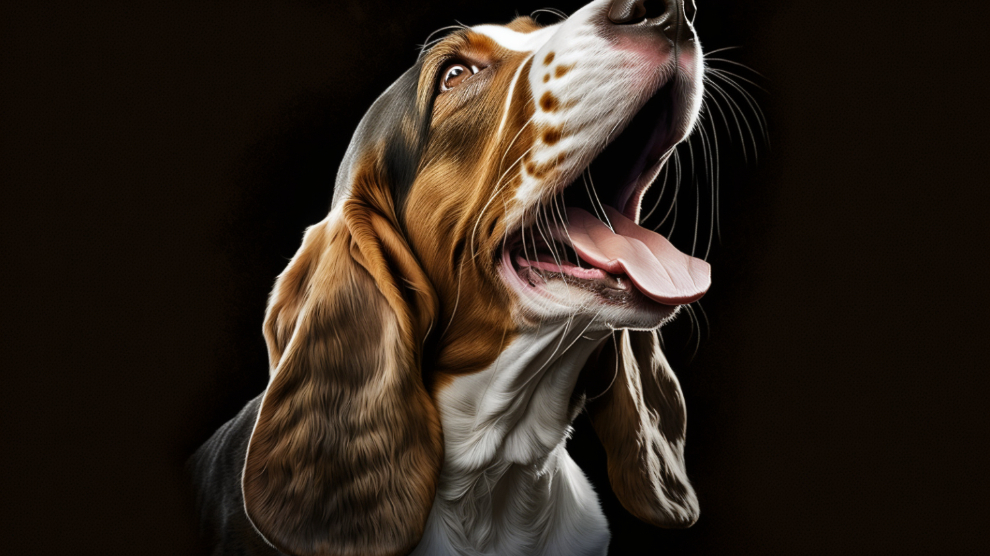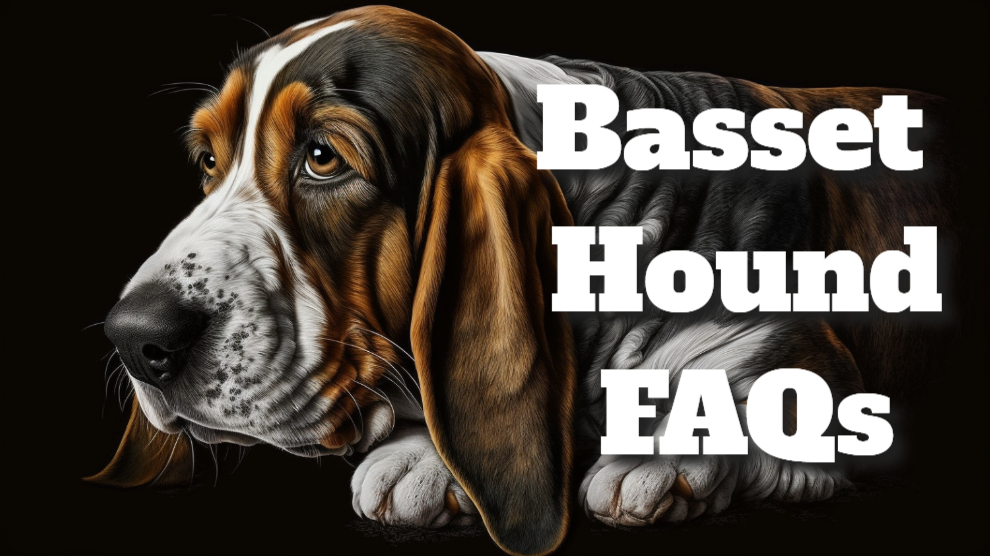- Facts
- Infographic
- History
- Is Basset Hound the Right Dog For You?
- Lifespan
- Size
- Height and Weight
- Coat Color
- Temperament
- Are Basset Hound good with children?
- Intelligence Level
- Are Basset Hound Good with Pets?
- Are Basset Hound Hypoallergenic?
- Grooming Requirements
- Shedding Level
- Barking Tendencies
- Are Basset Hound Suitable for Apartments?
- Exercise Needs
- Ease of Training
- Are Basset Hound Good for First Time Dog Owners?
- Health Problems
- Diet Requirements
- Grooming Needs
- How To Train a Basset Hound?
- Price
- Popularity
- Similar Breed Comparisons
- Common Uses of Basset Hound
- Fun Facts of Basset Hound
- Recognition
- Names
- Breeders
- FAQs
Dog Pregnancy Calculator And Timeline
The Basset Hound is a popular dog breed that is known for its distinctive long, droopy ears and short legs.
Originally bred in France to hunt small game, particularly rabbits, the Basset Hound has since become a beloved family pet thanks to its friendly, gentle temperament and easygoing personality.
Despite its laid-back nature, the Basset Hound is a skilled scent hound and requires regular exercise to stay healthy and happy.
With its charming looks and lovable disposition, the Basset Hound has earned a special place in the hearts of dog lovers around the world.
Basset Hound Facts
- Origin: France
- Size: Medium
- Dog Breed Group: Hound Group
- Purebred or Mixed Breed: Purebred
- Lifespan: 10-12 years
- Height (male): 12-15 inches
- Height (female): 11-14 inches
- Weight (male): 50-65 pounds
- Weight (female): 40-55 pounds
- Coat Appearance: Short and smooth
- Coat Colors: Black, white, tan, lemon, red, and mahogany, often with white markings
Temperament: Laid-back, friendly, and loyal - Good with Children: Yes
- Intelligence Level: Average
- Good with Pets: Yes, if socialized properly
- Hypoallergenic or Not: Not hypoallergenic
- Grooming Requirements: Low
- Shedding Level: Moderate
- Barking Tendencies: Moderate
- Suitability for Apartments: Not ideal
- Exercise Needs: Moderate
- Ease of Training: Moderate
- Good for First Time Dog Owners: Yes, with proper training and socialization
- Health Issues: Ear infections, hip dysplasia, obesity, and bloat
- Litter Size: 6-8 puppies
- Average Price: $800-$1,500
Basset Hound History
The Basset Hound is a breed of dog that originated in France in the 6th century, where it was developed to hunt small game such as rabbits and hares.
The breed is thought to be a descendant of the St. Hubert Hound, an ancient French breed that was used for hunting in the Middle Ages.
Bassets were first introduced to England in the 16th century, where they quickly became popular as hunting dogs due to their excellent sense of smell and ability to track scent trails.
The breed was officially recognized by the American Kennel Club in 1885, and since then has become a beloved companion dog in addition to its continued use in hunting.
Is Basset Hound the Right Dog For You?
Deciding whether a Basset Hound is the right dog for you involves considering the advantages and disadvantages of owning this breed.
Advantages:
Basset Hounds are affectionate and loyal companions that thrive on human company.
They are laid-back and generally easygoing, making them a good fit for less active households.
Despite their somewhat stubborn nature, Basset Hounds are generally good with children and get along well with other pets.
Disadvantages:
Basset Hounds are notorious for their droopy ears and loose skin, which can lead to ear infections and other skin problems.
They have a strong hunting instinct and a tendency to follow their nose, which can make them difficult to train and prone to wandering off if not kept on a leash or in a securely fenced area.
Their short legs and heavy build mean that Basset Hounds are not very agile and are prone to obesity if not fed a healthy diet and given regular exercise.
Overall, if you are willing to put in the effort to train and care for a Basset Hound, they can make excellent pets and loyal companions.
Basset Hound Lifespan
The Basset Hound has a relatively long lifespan for a large breed dog. On average, they can live from 10 to 12 years.
However, with proper care and attention, some Basset Hounds have been known to live up to 14 years.
As with any breed, there are certain health issues that can affect the lifespan of a Basset Hound.
These include obesity, hip dysplasia, ear infections, and back problems, among others.
Therefore, it is important to provide them with a well-balanced diet, regular exercise, and routine check-ups with a veterinarian to help ensure a longer and healthier life.
Basset Hound Size
Basset Hounds are medium to large-sized dogs, with a stocky and muscular build.
They are low to the ground, with short legs, and their bodies are long and heavy.
Bassets typically weigh between 40 and 65 pounds, with males being slightly larger than females.
Their height at the shoulder is usually around 12 to 15 inches. Although they are not particularly tall, their long bodies make them a substantial breed.
Bassets have a distinctive appearance that is instantly recognizable, and their size and shape make them stand out in a crowd.
Basset Hound Height and Weight
The Basset Hound is a medium to large-sized breed with short legs and a long body.
On average, male Basset Hounds stand between 12 to 15 inches (30 to 38 cm) at the shoulder, while females are slightly smaller, standing 11 to 14 inches (28 to 36 cm) at the shoulder.
In terms of weight, adult Basset Hounds typically weigh between 40 to 65 pounds (18 to 29 kg), with males being slightly larger than females.
However, it’s important to keep in mind that each dog is unique, and some may fall outside of this weight range.
It’s also essential to monitor your Basset Hound’s weight to prevent obesity, which can cause health issues.
Basset Hound Coat Color
Basset Hounds have a short and smooth coat that is dense and weather-resistant.
Their coat comes in a variety of colors and patterns, including tri-color (black, white, and brown), bi-color (white and brown or white and black), and red and white.
Some Basset Hounds may also have a single solid color such as lemon, tan, mahogany, or black.
In most cases, their coat color is accompanied by patches or markings in different colors, giving them a unique and distinct appearance.
The Basset Hound’s coat is easy to maintain and requires minimal grooming to keep it clean and healthy.
Basset Hound Temperament
Basset Hounds are known for their friendly and easygoing temperament, which makes them great family pets.
They are known for being loyal and affectionate to their owners and are generally good with children and other pets.
They are also known for being stubborn and independent, so they may be a bit difficult to train, but with patience and persistence, they can be taught basic obedience commands.
Basset Hounds are known for being very social dogs and thrive on human companionship.
They are not suited to be left alone for long periods of time and can become destructive if bored or lonely.
Basset Hounds are also known for being vocal and have a distinctive howl, which can be a nuisance to some people.
Overall, Basset Hounds are known for their good-natured and friendly temperament, which makes them a great choice for families who are looking for a loving and loyal companion.
Are Basset Hound good with children?
Yes, Basset Hounds are generally good with children. They are known for being gentle, loyal, and affectionate with their families, including children.
They have a patient and laid-back temperament that makes them a good match for kids.
However, as with any dog breed, it is important to supervise interactions between dogs and children to ensure that both are behaving appropriately and to prevent any accidental injuries.
Basset Hound Intelligence Level
The Basset Hound is an intelligent breed, but it is not considered to be one of the smartest dog breeds.
They have a strong sense of smell and a good memory, which they use for hunting and tracking purposes.
However, they can be stubborn and independent, which can make training a challenge.
It is important to start training and socializing Basset Hounds at a young age to help them develop good behavior and prevent any potential behavioral problems in the future.
Overall, the Basset Hound is an intelligent breed that can be trained with patience and consistency.
Are Basset Hound Good with Pets?
Basset Hounds are generally good with other pets, including dogs, cats, and small animals, as long as they are socialized properly from a young age.
Due to their hunting instincts, they may be inclined to chase smaller animals, but with proper training and supervision, they can coexist peacefully with other pets in the household.
As with any breed, it’s important to introduce them to other animals slowly and under close supervision to ensure everyone gets along well.
Are Basset Hound Hypoallergenic?
No, Basset Hounds are not hypoallergenic. They have a short, dense coat that sheds moderately throughout the year, which can cause allergies in some people.
Additionally, they produce dander, which is a common allergen.
If you are looking for a hypoallergenic dog, you may want to consider breeds such as the Poodle, Bichon Frise, or Portuguese Water Dog, among others.
Basset Hound Grooming Requirements
Basset Hounds have a short, smooth coat that is relatively easy to maintain.
They don’t require excessive grooming, but they do need regular bathing, brushing, and nail trimming to keep them clean and healthy.
Bathing should be done every three to four months, or as needed if they get dirty or smelly.
Basset Hounds should be brushed once a week to remove loose hair, dirt, and debris. This also helps distribute their natural oils and keeps their coat shiny and healthy.
Their long, floppy ears are prone to infections and need to be cleaned regularly with a damp cloth to prevent a buildup of wax and debris.
Basset Hounds also need their nails trimmed once a month or as needed to prevent overgrowth, splitting, and discomfort.
In addition to regular grooming, Basset Hounds may require occasional trips to a professional groomer for haircuts, especially around their paws and ears.
Basset Hound Shedding Level
Basset Hounds have a moderate shedding level.
They have a short, dense coat that sheds moderately year-round, and seasonally they will have a more significant shed.
Basset Hounds need weekly brushing to help remove loose fur and keep their coat in good condition.
Additionally, occasional baths and nail trims are recommended to keep them clean and healthy.
However, they are not considered to be a high-maintenance breed when it comes to grooming.
Basset Hound Barking Tendencies
Basset Hounds are known for their deep, loud barks, which they can produce when they are excited, upset, or want attention.
However, they are not considered to be excessive barkers and are generally not prone to barking without a good reason.
Some Basset Hounds may also howl, which is a trait that is common in hounds.
It’s important to socialize and train your Basset Hound from an early age to control its barking tendencies and ensure that they only bark when necessary.
Are Basset Hound Suitable for Apartments?
Basset Hounds are generally not the best breed for apartments due to their size and exercise needs.
They are a large breed and can be quite active, so they require a decent amount of space to run around and play.
In addition, they are known to be vocal and can bark quite a bit, which may disturb neighbors in an apartment setting.
However, with enough exercise and mental stimulation, some Basset Hounds may adapt to apartment living.
It’s important to consider their needs and temperament before deciding if they are a good fit for apartment living.
Basset Hound Exercise Needs
Basset Hounds have moderate exercise needs, requiring a daily walk or two and some playtime.
They are not an overly active breed, but they do need regular exercise to maintain a healthy weight and to prevent boredom.
Basset Hounds also enjoy sniffing and tracking scents, so they can benefit from activities like nose work or tracking exercises.
It’s important to note that Basset Hounds should be exercised on a leash or in a securely fenced area, as they have a tendency to follow their noses and can quickly become lost if they catch a scent that interests them.
Ease of Training
Basset Hounds can be quite stubborn and independent, which can make them more challenging to train.
They also have a strong sense of smell and may get easily distracted by scents in their environment, which can make it difficult to keep their attention during training sessions.
However, with patience, consistency, and positive reinforcement techniques, Basset Hounds can be trained to follow basic commands and even perform more advanced tasks such as hunting and tracking.
It’s important to start training and socializing Basset Hounds at a young age to help them become well-behaved and obedient dogs.
Are Basset Hound Good for First Time Dog Owners?
Basset Hounds can make good pets for first-time dog owners due to their laid-back and friendly nature.
They are generally easygoing and tolerant, making them a good fit for families with children or other pets.
However, it’s important to note that Basset Hounds can be stubborn and require patience and consistency in training.
They also have a strong hunting instinct and may need extra supervision when off-leash or around small animals.
Overall, with proper training, socialization, and care, Basset Hounds can be great pets for first-time dog owners.
Basset Hound Health Problems
Like all breeds, Basset Hounds are susceptible to certain health issues. Some common health problems that affect Basset Hounds include:
- Hip dysplasia
- Elbow dysplasia
- Intervertebral disc disease
- Ear infections
- Glaucoma
- Hypothyroidism
- Bloat
- Allergies
- Cancer
It’s important to work with a reputable breeder who screens their breeding dogs for these health issues and to schedule regular check-ups with a veterinarian to catch any potential health issues early.
Basset Hound Diet Requirements
Basset Hounds require a balanced and nutritious diet to maintain their health and well-being.
They have a tendency to gain weight, so it is important to monitor their food intake and provide them with regular exercise.
A diet high in protein is recommended to support muscle development, and it should also include healthy fats and complex carbohydrates.
Basset Hounds are prone to bloat, a serious condition where the stomach fills with gas and twists, which can be life-threatening.
To prevent bloat, it is best to feed them smaller, more frequent meals instead of one large meal per day.
It is also important to ensure that they have access to fresh water at all times.
Some Basset Hounds may have food sensitivities or allergies, so it is important to monitor their diet and work with a veterinarian to determine the best food options for your specific dog.
Additionally, it is important to avoid giving them table scraps or human foods, as these can be high in fat, salt, and sugar, which can lead to weight gain and other health problems.
Basset Hound Grooming Needs
Basset Hounds have a short, dense coat that is relatively easy to groom.
They do shed, but regular brushing with a soft bristle brush can help control shedding and keep the coat looking healthy.
Basset Hounds only need to be bathed occasionally, usually only when they get particularly dirty or develop a noticeable odor.
Their long, floppy ears require special attention, as they can trap moisture and debris, which can lead to infection.
It is recommended to clean their ears regularly, at least once a week, with a gentle ear-cleaning solution recommended by a veterinarian.
Additionally, Basset Hounds’ nails should be trimmed regularly to prevent overgrowth, which can cause discomfort and difficulty walking.
Dental hygiene is also important, and owners should brush their Basset Hound’s teeth regularly or provide dental chews to help keep their teeth clean and healthy.
How To Train a Basset Hound?
Basset Hounds are known for their stubbornness and independent nature, which can make training a challenge.
However, with patience, consistency, and positive reinforcement, Basset Hounds can be trained successfully.
Here are some tips on how to train a Basset Hound:
- Start training early: Begin training your Basset Hound as soon as possible. The earlier you start, the easier it will be to establish good habits and prevent bad ones.
- Be patient and consistent: Basset Hounds can be slow learners, so it’s important to be patient and consistent in your training. Use positive reinforcement and rewards to encourage good behavior.
- Use a firm, but gentle approach: Basset Hounds respond best to a firm, but gentle training approach. Harsh training methods can be counterproductive and damage the bond between you and your dog.
- Keep training sessions short: Basset Hounds have short attention spans, so keep training sessions short and frequent. 10-15 minutes a day is a good start.
- Use food rewards: Basset Hounds are motivated by food, so use treats as rewards for good behavior. Use small, healthy treats, and avoid overfeeding your dog.
- Socialize your Basset Hound: Basset Hounds can be timid or aggressive if they are not socialized properly. Socialize your Basset Hound by exposing them to a variety of people, animals, and situations.
- Use positive reinforcement: Positive reinforcement is the key to successful Basset Hound training. Praise your dog when they behave well, and use treats or toys as rewards.
- Be patient: Training a Basset Hound can be a slow process, so be patient and consistent in your approach. With time and effort, your Basset Hound can learn to be a well-behaved, obedient companion.
Basset Hound Price
The price of a Basset Hound can vary depending on factors such as the dog’s age, lineage, and location.
On average, a Basset Hound puppy from a reputable breeder can cost between $500 to $1,500. However, the price can be much higher for puppies from champion bloodlines.
Adopting a Basset Hound from a rescue or shelter can be a more affordable option, typically ranging from $50 to $300.
It is important to keep in mind that the cost of owning a Basset Hound goes beyond the initial purchase or adoption fee, and includes ongoing expenses such as food, vet care, and grooming.
Basset Hound Popularity
According to the American Kennel Club, the Basset Hound is ranked as the 39th most popular dog breed out of 197 breeds.
While the breed is not as popular as some other breeds, Basset Hounds have a loyal following due to their unique appearance and personality.
Basset Hounds are often beloved by those who appreciate their calm and affectionate nature, as well as their excellent sense of smell and hunting abilities.
Similar Breed Comparisons
When compared to similar breeds, Basset Hounds are known for their excellent sense of smell, which is similar to that of other hound breeds such as the Bloodhound and Beagle.
However, Basset Hounds have a distinctive appearance with their long ears and droopy eyes, which sets them apart from other breeds.
In terms of temperament, Basset Hounds are generally known to be friendly, patient, and loyal, which is similar to other breeds in the hound and sporting groups.
They can be somewhat stubborn, but are generally good-natured and easy-going, making them a great choice for families with children.
One difference between Basset Hounds and some similar breeds, such as Beagles and Dachshunds, is that Basset Hounds are typically larger and heavier, with a more substantial build.
This can make them a bit less agile and athletic, but they are still active and enjoy outdoor activities.
Overall, Basset Hounds have a unique combination of characteristics that set them apart from other breeds, but also share some common traits with other hound and sporting breeds.
Common Uses of Basset Hound
Basset Hounds were originally bred as hunting dogs for tracking small game, particularly rabbits and hares.
Today, they are commonly kept as companion animals and may also be used in various activities such as obedience and agility training.
Basset Hounds are also sometimes used in therapy work due to their gentle and friendly nature.
Additionally, their excellent sense of smell makes them well-suited for certain types of work, such as search and rescue or as detection dogs for law enforcement agencies.
Fun Facts of Basset Hound
Here are some fun facts about the Basset Hound:
- Basset Hounds have an excellent sense of smell and were originally bred for hunting small game such as rabbits and hares.
- The breed has been around for hundreds of years, with the first mentions of a “low-slung” hunting dog resembling the Basset Hound appearing in 16th century French literature.
- Basset Hounds have a unique, “sad” facial expression due to their droopy eyes and long ears, which actually serve a functional purpose in helping to trap scents.
- The Guinness World Record for longest ears on a dog was held by a Basset Hound named Tigger, whose ears measured over 13 inches each.
- President George Washington was known to keep Basset Hounds at his estate, Mount Vernon.
Some popular celebrities who own Basset Hounds include:
- Sandra Bullock – owns a Basset Hound named Poppy
- George Clooney – owns a Basset Hound named Millie
- Halle Berry – owns a Basset Hound named Jackson
- Tom Hanks – owns a Basset Hound named Monty
- Elvis Presley – famously owned a Basset Hound named Sherlock
Basset Hound Recognition
Yes, the Basset Hound is recognized by various kennel clubs and breed organizations worldwide. These organizations include:
- American Kennel Club (AKC)
- United Kennel Club (UKC)
- Canadian Kennel Club (CKC)
- The Kennel Club (UK)
- Australian National Kennel Council (ANKC)
- New Zealand Kennel Club (NZKC)
- Federation Cynologique Internationale (FCI)
- North American Kennel Club (NAKC)
These organizations help to establish and maintain breed standards, promote responsible breeding practices, and organize events and competitions for Basset Hound owners and enthusiasts.
Basset Hound Names
Here are some name ideas for a Basset Hound:
- Duke
- Sadie
- Hank
- Rosie
- Cooper
- Molly
- Rusty
- Bubba
- Bella
- Winston
- Charlie
- Sophie
- Zeus
- Daisy
- Bruno
- Lucy
- Rufus
- Stella
- Winston
- Lola
Basset Hound Breeders
Finding a reputable and responsible breeder is important when looking to bring home a Basset Hound.
Here are a few resources to help you find Basset Hound breeders:
American Kennel Club (AKC) Marketplace: The AKC Marketplace is a good place to start your search for Basset Hound breeders.
This platform allows breeders to advertise their available puppies, and you can search for breeders in your area.
Basset Hound Club of America: The Basset Hound Club of America maintains a breeder directory on their website.
You can search for breeders in your state and contact them for more information.
Basset Hound Rescue: You may also consider adopting a Basset Hound from a rescue organization.
These groups often have Basset Hounds available for adoption and can help you find the right dog for your family.

